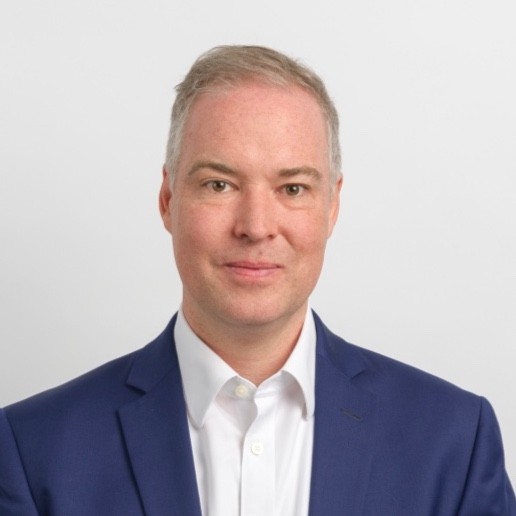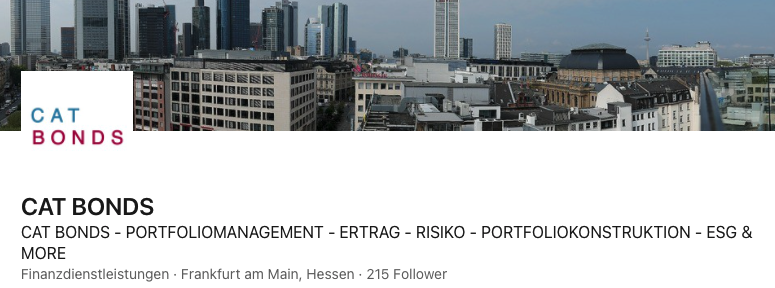The topics of family offices, hedge funds (Archegos), and regulation are currently being discussed intensively in professional circles and the media. Markus Hill spoke for FONDSBOUTIQUEN.DE with Daniel Grieger, Plenum Investments AG, about the importance of risk management and the strengths of insurance companies compared to classic hedge funds in this context. The focus of the conversation was on topics such as subordinated bonds in the insurance sector and the special factor of know-how, investment process, and CAT bonds. Points such as portfolio management due diligence and a current event (21 & 22.4.2021) were also part of this exchange.
Hill: You have been working intensively on the topics of CAT bonds (insurance-linked securities) and risk management for years. Currently, the scandal surrounding the US hedge fund Archegos is attracting a lot of attention in the media. Credit Suisse, family offices, regulation – the search for causes is on. What can insurers do better than hedge funds?
Grieger: For two decades I have been dealing with the intersection between the world of insurance and the world of asset management. Our Plenum Insurance Capital Fund, which will soon have a one-year track record, ideally embodies what is possible if you are open to ideas of providing capital to insurers. In my view, insurance companies are completely underestimated in terms of their ability to analyze risks. Many methods of analyzing risks originated in insurance companies and were only later adopted by other sectors, such as banks. Here, there is even the profession of an actuary, which shows that people have been dealing with risks for a very long time.
The current case of the collapse of a “family office” (Archegos), which operated like a hedge fund, shows impressively what can happen if risks are not kept under control. And when I compare banks with insurance companies, some differences are obvious. Insurance companies can often draw on a huge catalogue of historical data. For earthquake models, for example, you go back several hundred years to estimate the damage intensity of a possible earthquake. Moreover, insurance claims are not paid out immediately. Unlike the sinking of a hedge fund, the money is not immediately gone. Insured losses are paid out over longer periods. The liquidity for a claim, therefore, does not have to be held permanently. In the case of larger losses, one also has the time to raise further funds on the capital market. This also means that a bank run like Northern Rock in 2007 is not possible with insurers.

Hill: Your special expertise is attracting increased interest due to the low-interest phase, and investment alternatives are being sought. What is special about investing in CAT bonds (insurance-linked securities)?
Grieger: With CAT bonds we take the position of a reinsurer. We cover catastrophe risks – mostly storms or earthquakes in North America or Japan. These are geographically local events that can be diversified into portfolios. The funds we manage assume these risks and receive the coupon payments of the CAT bonds in return. A catastrophe event can trigger a partial default or even a total default of a CAT bond. In the past decades, CAT Bonds have proven that they hardly react to financial market events. CAT bonds thus represent an important source of alternative fixed-income returns. At this point I need to emphasize that I also include the area of insurance subordinated bonds in this investment segment. Whether CAT bond or subordinated bond – the type of capital injection seems less relevant to me, in the end, the insurer can write more business.
Hill: Thank you for the keyword. You have just launched a fund in the subordinated insurance debt segment. Many investors are familiar with this asset class in the banking sector. How did the idea come about? Where are the differences in the way banks and insurance companies look at subordinated debt?
Grieger: Subordinated insurance debt is a highly attractive niche – which hardly anyone seems to understand. More and more banks withdraw their credit research coverage of the insurance sector. I just heard today that at another large London investment bank transferred the insurance coverage to their bank analyst. But you can’t expect much quality from this analyst anymore. We can show that with the MIFID-induced reduction of analysts – because nobody pays for research anymore – the mispricing on the market is increasing. And we also want to exploit this with the new Plenum European Insurance Bond Fund. Moreover, subordinated insurance bonds have been paying an additional premium over traditional corporate bonds for years.
Hill: What is the investment process for the fund?
Grieger: First, we perform a fundamental analysis on the issuer itself. Our Coverage Universe comprises around 60 issuers and we have clearly defined which issuers have a place in our portfolio. The second step is the prospectus analysis, where we compare the attractiveness of the individual bonds and capital types. An important factor here is estimating the expected call date of the bond. This has to be done individually, as the bonds are structured very differently. Only based on the expected call date can we define the expected yield of a bond and compare the attractiveness of the individual bonds of an issuer.
Hill: This structured approach seems very labour-intensive. Who covers which areas of analysis and portfolio management in your team, and with what expertise?
Grieger: The portfolio management team consists of three members. Each has its focus – but the coordination among them is extremely close. Rotger Franz has been doing credit analysis of insurance companies in Europe for 20 years, he was ranked as the best insurance analyst by Euromoney ten times in a row. He is the Lead PM of the Plenum European Insurance Bond Fund. I have been managing portfolios of subordinated insurance bonds for eight years and act as his deputy. Dirk Schmelzer is the most experienced CAT bond portfolio manager in the whole market – for him, insurance subordinated insurance bonds are still relatively new but he is growing into the task.
Hill: You said above that the subordinated insurance bond market is very special, very know-how-intensive. Are there enough bonds in the segment?
Grieger: If you look at the segment of financials subordinated bonds, of course, 90 % are bonds issued by banks. Nevertheless, the remaining 10 % are insurance subordinated bonds, a market of just under 200 billion euros. There is, of course, enough choice and the segment has grown stronger thanks to the modernization of the solvency regime in Europe (keyword Solvency II).
Hill: What are you currently working on?
Grieger: We are currently preparing the webinar next week. The topic is, of course, subordinated insurance bonds. The interest is huge – because everyone is desperately looking for interesting solutions on the fixed income side. I also get to prepare talks with students from the International University of Monaco right now. Students of the Master of Finance programme want to do a simulated portfolio manager due diligence with me. I am already looking forward to getting some unusual questions.
Hill: Thank you very much for the interview.
Daniel Grieger is a partner and fund manager at Plenum Investments AG.
PLENUM INVESTMENTS AG: www.plenum.ch

Related Articles:
- ESG, Climate Change, SDGs – CAT Bonds, Ratings & Volcanoes (Interview – Roland Kölsch, Qualitätssicherungsgesellschaft Nachhaltiger Geldanlagen)
- CAT Bonds, Climate Change, Risk Management & “Palms of Steel” (Interview – Daniel Grieger, Plenum Investments AG)
- ESG, Cat Bonds, Industry & Cooperation, “Tail-Risks” and Asset Management (Interview – Nico Rischmann, Plenum Investments AG)

4 thoughts on “FUND BOUTIQUES & PRIVATE LABEL FUNDS: Family Offices, Hedge Funds, CAT Bonds & Subordinated Bonds & Portfolio Manager Due Diligence – EVENT NOTE (Interview – Daniel Grieger, Plenum Investments AG)”